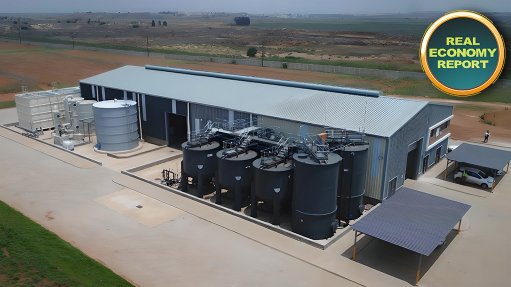Expedient pan-Africanist
Kenyan President William Ruto’s strong support for the ratification of the Malabo Protocol deserves some critical scrutiny. But first some background. Ruto, it should not be forgotten, shot to prominence as an activist for the then governing Kenyan African National Union’s youth wing at the party’s most vicious in the 1990s – when its hold on power was threatened for the first time. He would later be implicated in a bloodletting campaign in the aftermath of the country’s 2007 elections, escaping prosecution at the International Criminal Court (ICC) on a technicality.
Ruto, who served as Kenya’s Vice President from 2013 to 2022, was charged with the 2007 post-election violence alongside his erstwhile ally, Uhuru Kenyatta, who was President for the two terms when Ruto was second in command. The two, however, fell out during the latter half of Kenyatta’s Presidency.
When it became apparent that Ruto was not a shoo-in for the top job, with Kenyatta having thrown in his lot with opposition leader Raila Odinga, Ruto launched what would eventually prove to be a successful campaign. It was based on what he termed the ‘Hustler’ narrative, the notion that it was time for the ‘downtrodden’ to take power from the political elite. This was a reference to Kenya’s founding President and Vice President being the fathers of Kenyatta and Odinga respectively. According to Ruto’s messaging, having Odinga Junior as President after Kenyatta Junior would perpetuate their families’ stranglehold on political power.
As I stated previously in this column, Ruto was playing dangerous class politics. I pointed to Rwanda, where the country’s colonial masters elevated the Tutsis above the Hutus, thus creating resentment between the two ethnic groups. As some have argued, the Rwandan genocide, in which 800000 to one-million Tutsis perished in 1994 at the hands of their Hutu compatriots, had class conflict – and not necessarily ethnic conflict – written all over it. Thankfully, the Hustler narrative did not incite the ‘downtrodden hustlers’ to engage in violent acts against perceived elites.
Ruto has been President since September last year, and it hasn’t been plain sailing at all. Since March, the country has been dogged by protests over the lifting of subsidies on basic commodities and rising taxes. The protests were called by opposition parties, including Odinga’s, whose members believe that last year’s election was rigged against their leader, furthering mistrust in Ruto’s government.
The police’s response to the protests has been brutal, with 20 people having been killed and hundreds injured, according to government, although some believe the toll is much higher.
In the midst of all this, Ruto has rushed to ratify the African Union’s (AU’s) Malabo Protocol, which provides for the setting up of the African Court of Justice and Human Rights. Only 16 countries have done so, but a minimum of 28 are required for the protocol to take effect. The yet-to-be-established continental court will have jurisdiction over 14 major crimes, including crimes against humanity and war crimes – the sort of crimes Ruto and Company may be charged with as a result of the police response to the street protests of the past few months. But there is a clause in the protocol that makes it attractive to Ruto and his ilk – it grants them immunity from prosecution while they are still in office.
This seems to explain Ruto’s haste to ratify the protocol since, once the African Court of Justice and Human Rights has been established, African leaders who are guilty of serious crimes will have a legitimate reason to refuse to submit to the ICC, which gives no hoots about whether an accused person is a serving head of State.
Pressure is reportedly mounting against Ruto after Odinga’s opposition coalition announced it was collecting evidence to file a case at the ICC against Ruto and his government for using excessive force against anti-government protesters.
In May, while addressing the Pan-African Parliament in South Africa, Ruto said ratifying the Malabo Protocol would strengthen AU institutions to work for Africans. But, as a Kenyan political analyst has observed, “the ICC case has pushed him to be a pan-African enthusiast”. I cannot agree more.
Comments
Press Office
Announcements
What's On
Subscribe to improve your user experience...
Option 1 (equivalent of R125 a month):
Receive a weekly copy of Creamer Media's Engineering News & Mining Weekly magazine
(print copy for those in South Africa and e-magazine for those outside of South Africa)
Receive daily email newsletters
Access to full search results
Access archive of magazine back copies
Access to Projects in Progress
Access to ONE Research Report of your choice in PDF format
Option 2 (equivalent of R375 a month):
All benefits from Option 1
PLUS
Access to Creamer Media's Research Channel Africa for ALL Research Reports, in PDF format, on various industrial and mining sectors
including Electricity; Water; Energy Transition; Hydrogen; Roads, Rail and Ports; Coal; Gold; Platinum; Battery Metals; etc.
Already a subscriber?
Forgotten your password?
Receive weekly copy of Creamer Media's Engineering News & Mining Weekly magazine (print copy for those in South Africa and e-magazine for those outside of South Africa)
➕
Recieve daily email newsletters
➕
Access to full search results
➕
Access archive of magazine back copies
➕
Access to Projects in Progress
➕
Access to ONE Research Report of your choice in PDF format
RESEARCH CHANNEL AFRICA
R4500 (equivalent of R375 a month)
SUBSCRIBEAll benefits from Option 1
➕
Access to Creamer Media's Research Channel Africa for ALL Research Reports on various industrial and mining sectors, in PDF format, including on:
Electricity
➕
Water
➕
Energy Transition
➕
Hydrogen
➕
Roads, Rail and Ports
➕
Coal
➕
Gold
➕
Platinum
➕
Battery Metals
➕
etc.
Receive all benefits from Option 1 or Option 2 delivered to numerous people at your company
➕
Multiple User names and Passwords for simultaneous log-ins
➕
Intranet integration access to all in your organisation
















